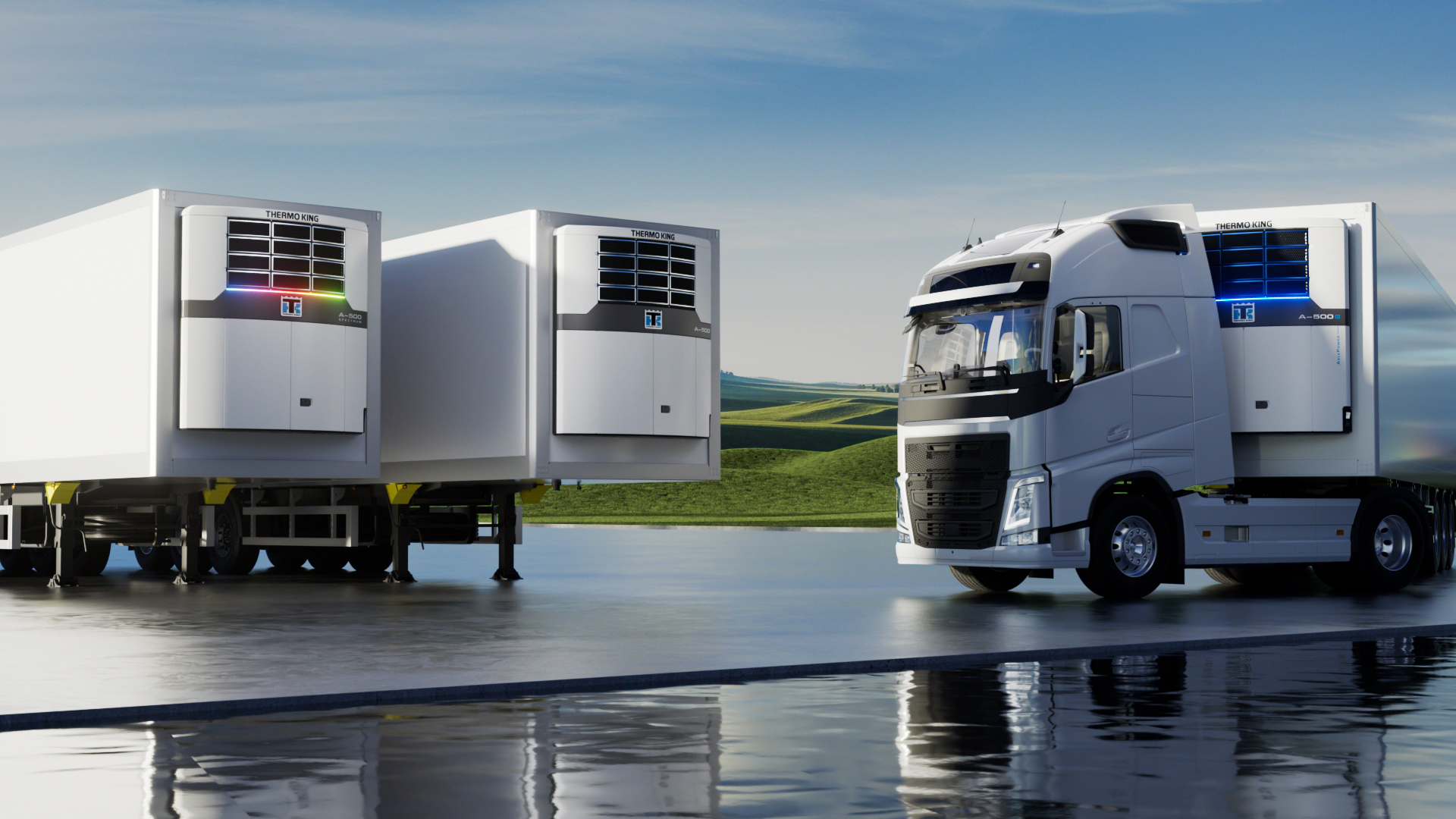The HVO Refrigeration Revolution
The HVO Refrigeration Revolution
The use of hydrotreated vegetable oil (HVO) fuel in Thermo King units translates into a 90% reduction in greenhouse gas emissions and particulate matter pollution, with no reduction in engine performance compared to fossil fuels.
Since 2021, HVO fuel has been approved by Thermo King – a leader in transport temperature control solutions and a brand of Trane Technologies – as a more sustainable fuel alternative to power Thermo King’s truck and trailer refrigeration units.
In recent months, Europe has witnessed an increase in the availability of HVO across Central and Southern Europe, in addition to already widespread public availability in the north of the continent.
Many Thermo King customers are already using HVO on the road in their truck and trailer fleet operations. The now increased availability of HVO across Europe enables more Thermo King customers to improve the sustainability of their operations, giving them another option to reduce the carbon emissions of their fleets.

The use of HVO instead of traditional diesel leads to a 90% reduction in greenhouse gas emissions and particulate matter pollution from the engine, with unchanged performance. The HVO can be used as a drop-in replacement or mixed with regular diesel, with no requirements for engine modification or shorter maintenance intervals.
In addition to this, all Thermo King large truck and trailer units with diesel engines have, since 2021, been tested with HVO in the Galway, Ireland manufacturing plant, allowing the plant to reduce its carbon emissions.
Thermo King’s actions are part of the industry-leading approach and innovation by Trane Technologies to decarbonise buildings, industry, and the cold chain to advance its 2030 Sustainability Commitments (including the Gigaton Challenge) and its pledge to be Net Zero by 2050. The company was also the first in its industry to have its near- and long-term emissions reduction targets externally validated by the Science Based Targets Initiative (SBTi).
What is HVO?
HVO, or Hydrotreated vegetable oil, is a type of renewable diesel fuel made from vegetable oils, animal fats, or other renewable raw materials through a process called hydrotreatment. It is often marketed under the name XTL (which stands for “X-to-liquid”), signifying its production method that converts various raw materials (the “X”) into liquid fuels.
HVO is produced using a hydrogenation process that removes oxygen from the raw materials, resulting in a pure hydrocarbon fuel. This method distinguishes HVO from traditional biodiesel – Fatty Acid Methyl Ester (FAME) – which is produced through esterification and may have different chemical properties. The hydrogenation process provides HVO with similar chemical properties to conventional fossil diesel, making it fully compatible with diesel engines without modification.
The benefits of HVO are multiple, including reduced greenhouse gas emissions, improved engine performance, long shelf life, and compatibility due to its “drop-in” nature for unmodified use with existing diesel engines and fuel infrastructure.
Marketed under names like XTL, Renewable Diesel, or Green Diesel, HVO is increasingly being used in various sectors such as transportation, logistics, agriculture, and marine industries. Its use is often encouraged by governments and organisations aiming to reduce their carbon footprint.
Published by
Focus on Transport
focusmagsa




